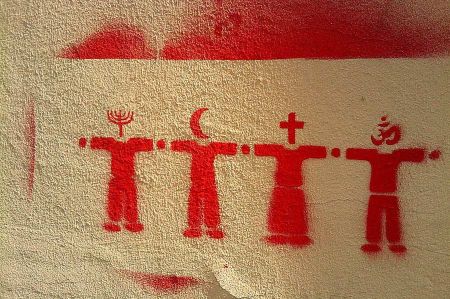Sharia - the Islamic law
- Written by Portal Editor
The word Sharia actually means "path" and in the Koran, where surprisingly it only appears once, means religion in general.
Only later did the word acquire the specific meaning of "law" and so Islamic law as a whole is referred to as "the Sharia".
This includes ritual regulations such as ablutions, prayers, fasting in Ramadan, the sakat (zakat, obligatory donation in favour of the poor) and pilgrimage (hajj) as well as family law regulations, laws on trade and irrigation, even constitutional law and criminal law. In theory, although very few details of this comprehensive legal system are based on the Koran, Sharia is considered divine law.
In reality, most of the precepts were developed by legal scholars over centuries. Some parts of the Sharia, such as slave law, have lost their meaning entirely, while others, particularly family law provisions, are still valid in many Islamic countries and are even practiced in some countries.
Anyone who would like to find out more about Islamic law, especially about its current significance and its role among Muslim minorities, should consult the recommended work by the lawyer and Islamic scholar Mathias Rohe: Islamic Law - History and Present (Munich: C. H. Beck Verlag, 2009, 621 pages).
The Sharia is divided into two basic categories:
 Sharia refers to the entirety of Islamic law, i.e. the law that finds its sources in the Koran and Sunna and is considered unchangeable because of its divine origin. The Sharia is divided into two basic categories: The first area (al-ibadat) deals with the relationship between man and God and deals with questions of religious practice, such as the rules of fasting or ritual ablutions. The second area (al-mu'amalat) regulates the relationships between people and deals with questions of marriage, inheritance and criminal law.
Sharia refers to the entirety of Islamic law, i.e. the law that finds its sources in the Koran and Sunna and is considered unchangeable because of its divine origin. The Sharia is divided into two basic categories: The first area (al-ibadat) deals with the relationship between man and God and deals with questions of religious practice, such as the rules of fasting or ritual ablutions. The second area (al-mu'amalat) regulates the relationships between people and deals with questions of marriage, inheritance and criminal law.
Since the Sharia sometimes leaves a lot of room for interpretation, the discipline of Islamic jurisprudence developed in the first Islamic centuries, which makes the divine law practicable in the form of instructions and legal opinions. In the Islamist spectrum, this classic form of mediating jurisprudence is rejected in favour of direct recourse to the ancestors. While a secular law (qanun) developed parallel to the Sharia in all Islamic states from the first centuries, which was based on customary law, rulers' decrees or, in modern times, on the basis of European models and dealt with issues that were not dealt with in the Sharia Islamist currents reject the need for an amendment to the Sharia, which is considered to be all-encompassing.
- Dr. Christian Funke
Please read as well:
